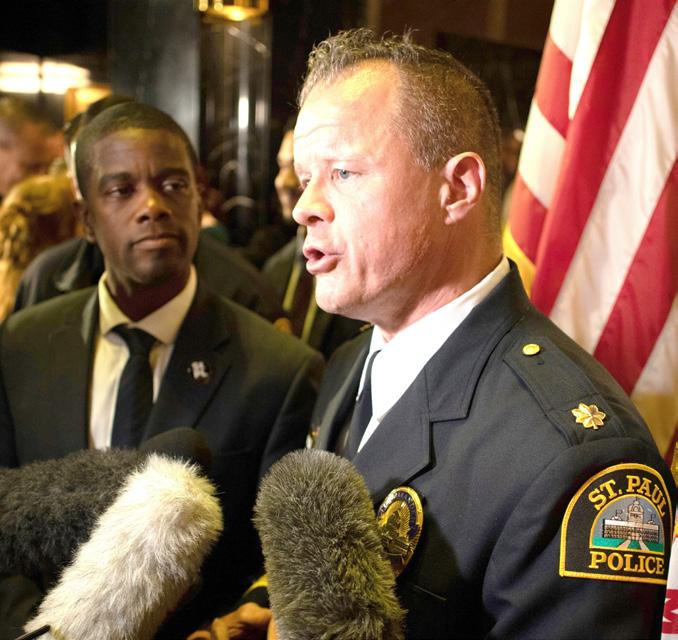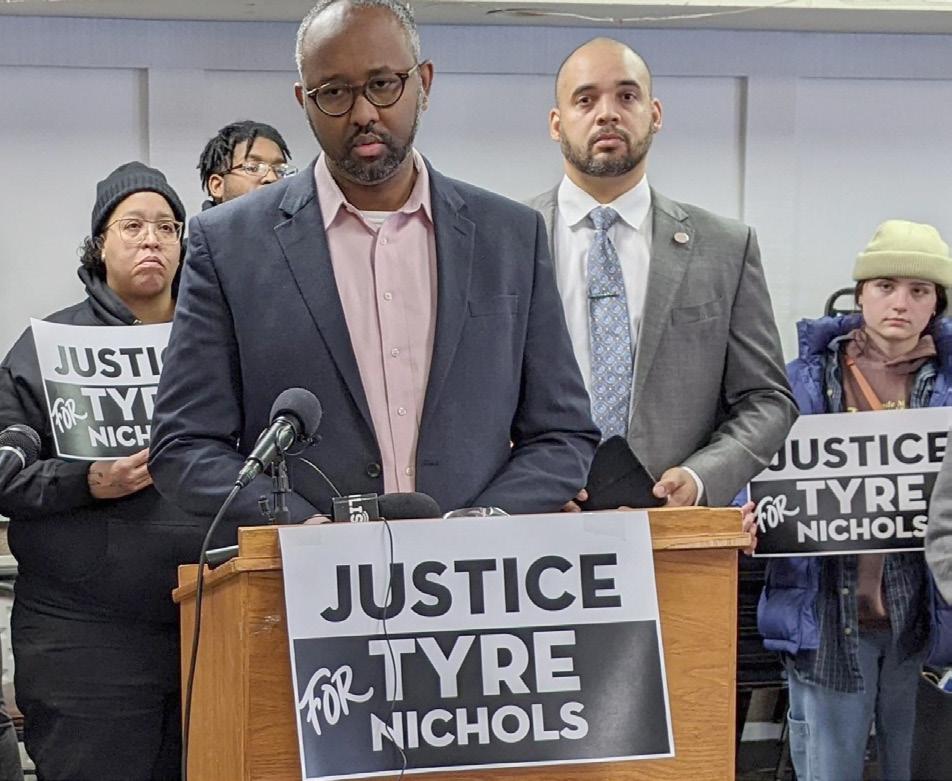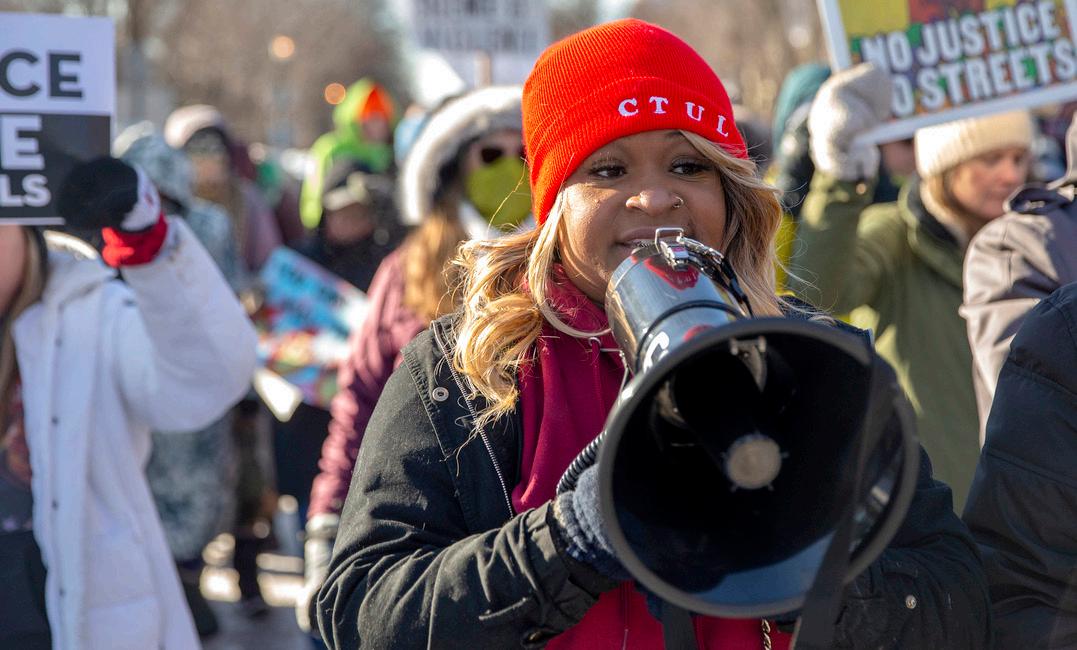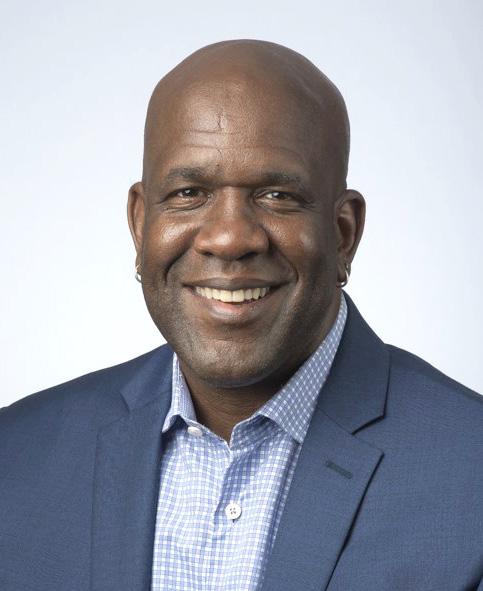
1 minute read
Nichols killing fuels local demands for police reform

By Cole Miska
Contributing Writer
Footage of the police killing of Tyre Nichols, after a traffic stop in Memphis, Tennessee, was released Friday, Jan. 27.
Nichols died from injuries sustained from being struck dozens of times over several minutes by former Memphis police officers after he was already restrained. The bodycam and overhead street surveillance footage show several officers striking Nichols’s head with a baton and kicking Nichols while he is held down on the ground. The five officers, who were all Black, have since been terminated and charged with seconddegree murder over the killing of Nichols.
Several Minneapolis organizations reacted to the news on Friday and Saturday. The Council on American-Islamic Relations (CAIR) called the killing “brutal” and hosted a press conference with representatives from Communities United Against Police Brutality (CUAPB), Families Supporting Families Against Police Violence (FSFAPV), and other local organizations.

Jaylani Hussein, executive
Public safety requires a community united against violence
director of CAIR Minnesota, called the video of the killing “truly difficult to watch.”
“For America and here in Minnesota today we’re waking up to what we have always woken up to—sympathies, empty words, and nothing ever getting done to actually hold police accountable and to actually call out
An
interview with St. Paul Police Chief Axel Henry
By Abdi Mohamed
Contributing Writer
As a 24-year veteran of the St. Paul Police Department (SPPD), Axel Henry (AH) has held various leadership roles in his career, which ultimately led to his appointment as chief by Mayor Melvin Carter last November. The new chief of SPPD enters the job at a time when the city has seen a rise in homicides and continues to battle gun violence.

With several challenges facing the department, Henry believes that a system solely reliant on the police will not succeed, emphasizing the importance of community involvement in solving crime but more importantly preventing it.
Henry has made a name for himself in the department, having led officer training sessions and recently commanding the Narcotics, Financial Intelligence, and Human Trafficking Division. When the department needed a leader to implement new programs and set an example for other officers, Henry was
■ See HENRY on page 5







